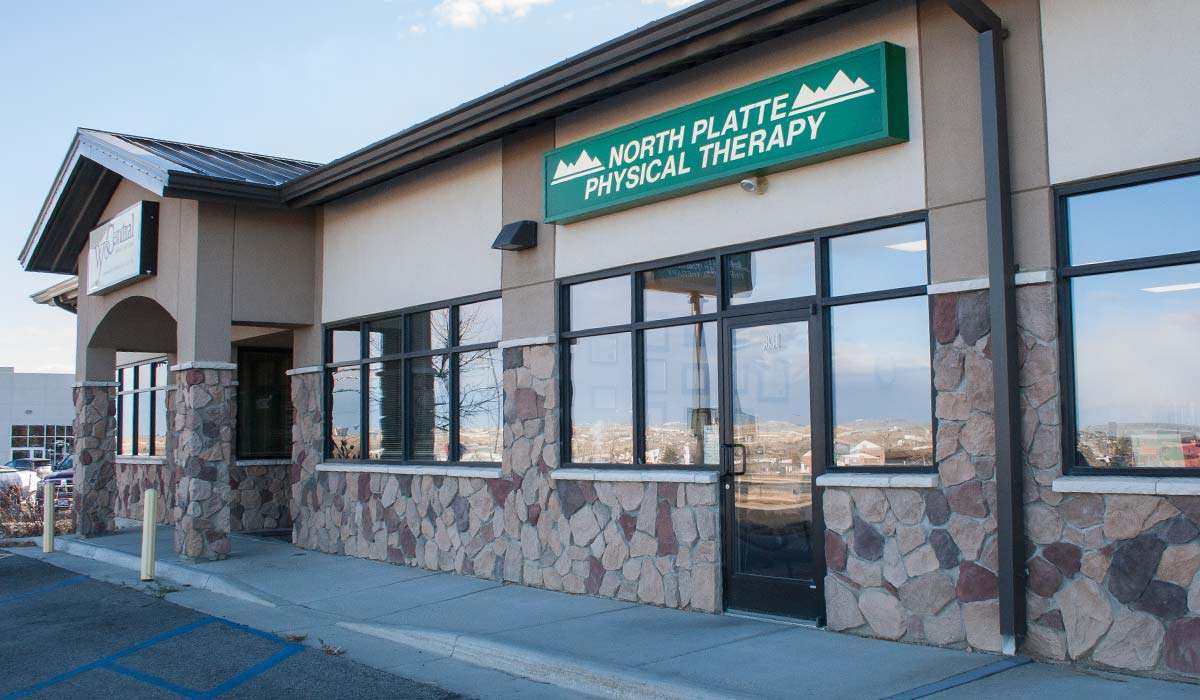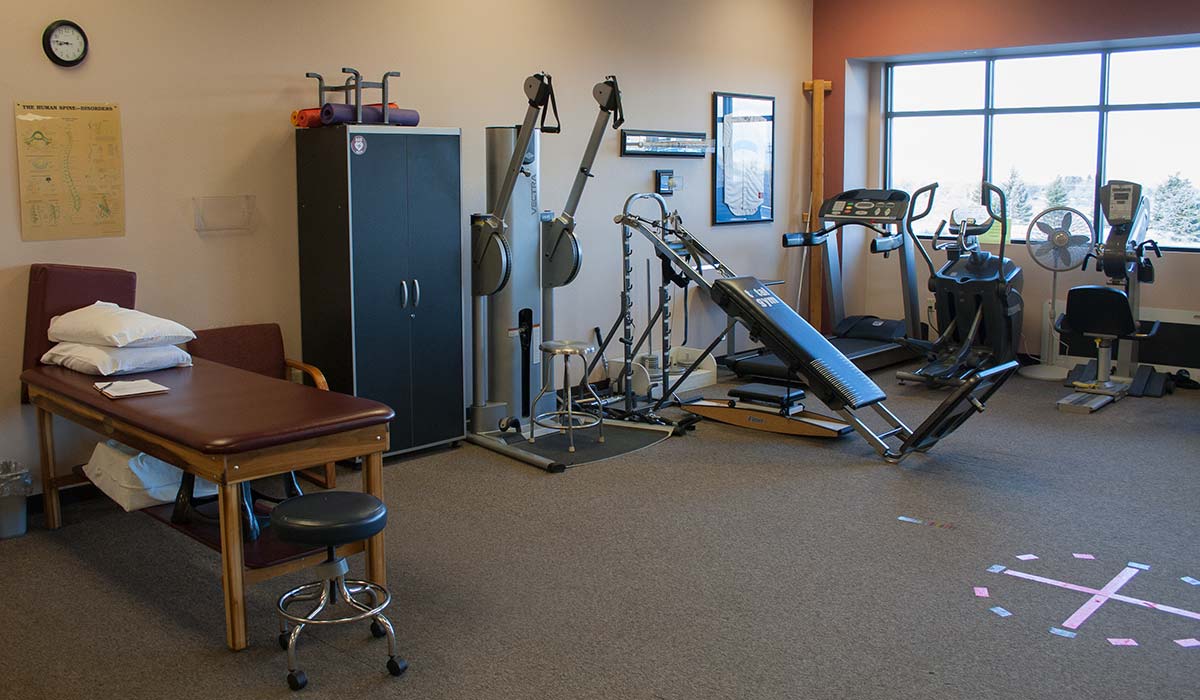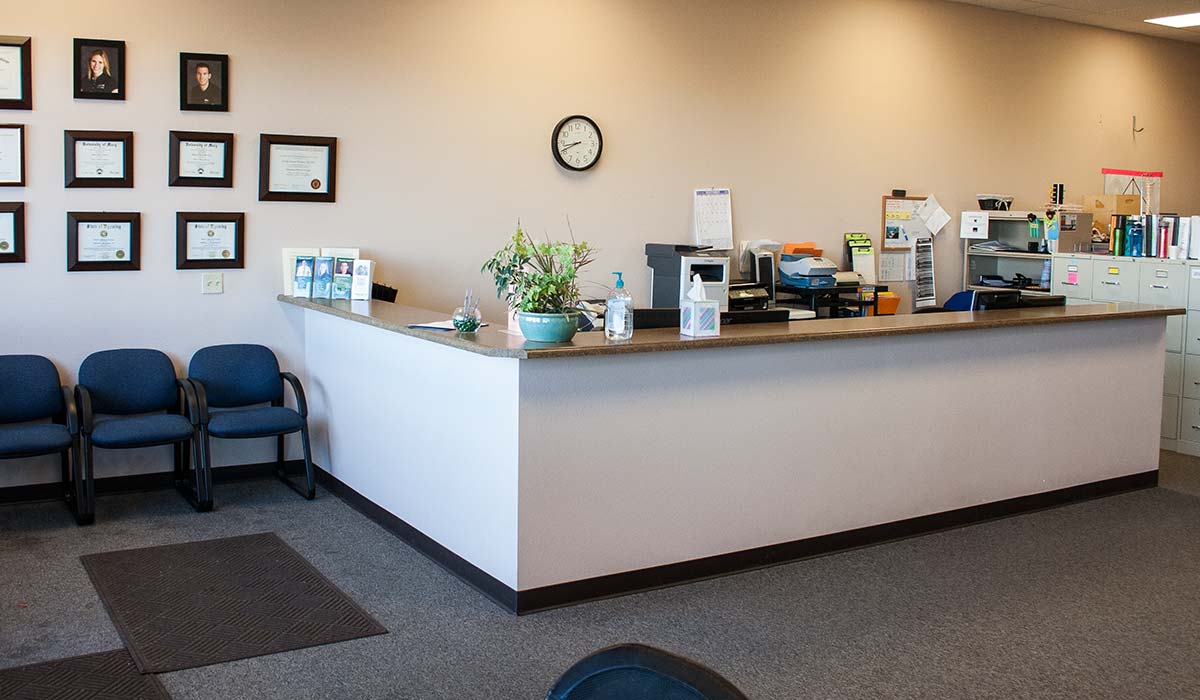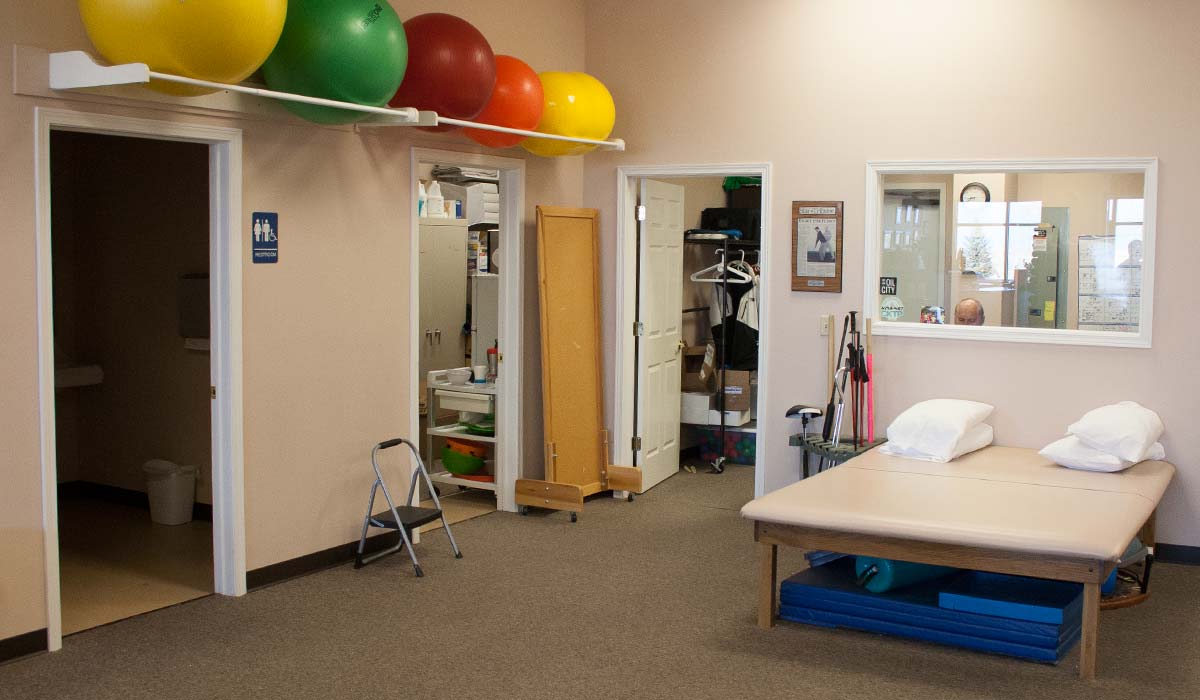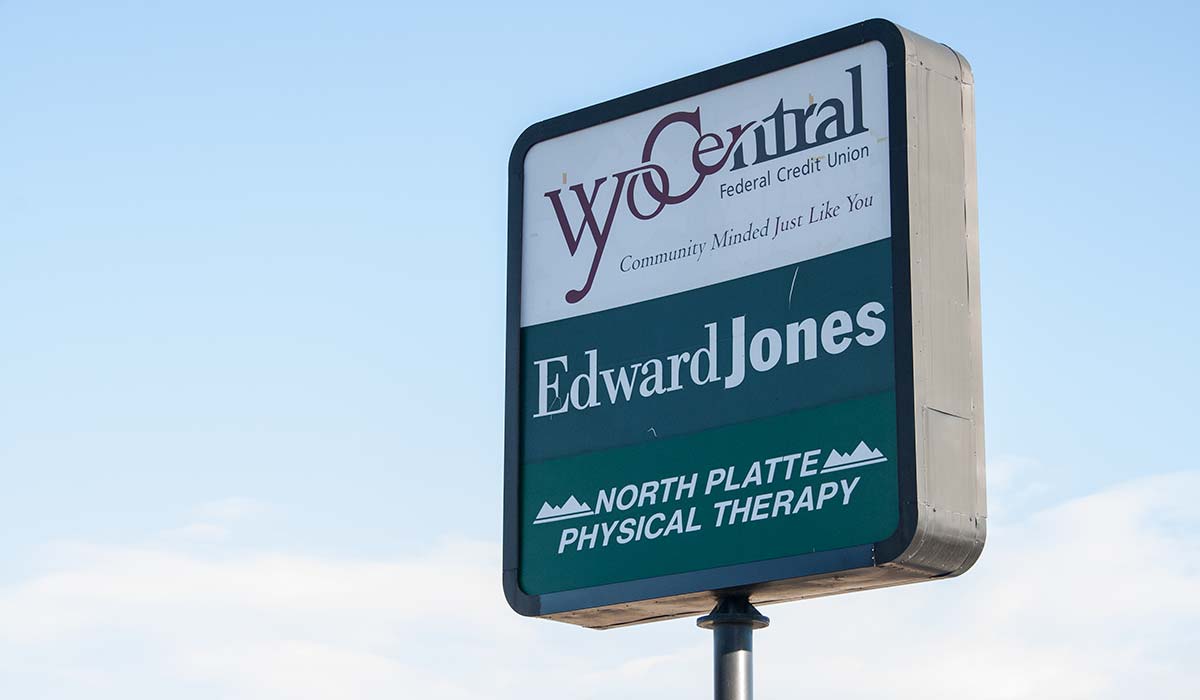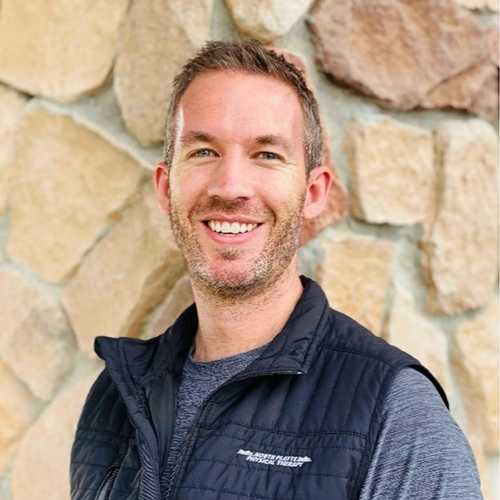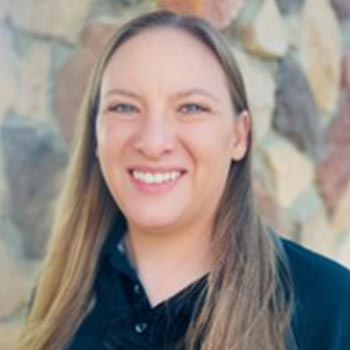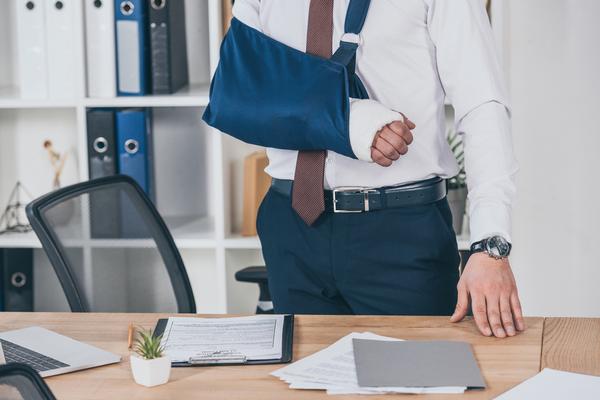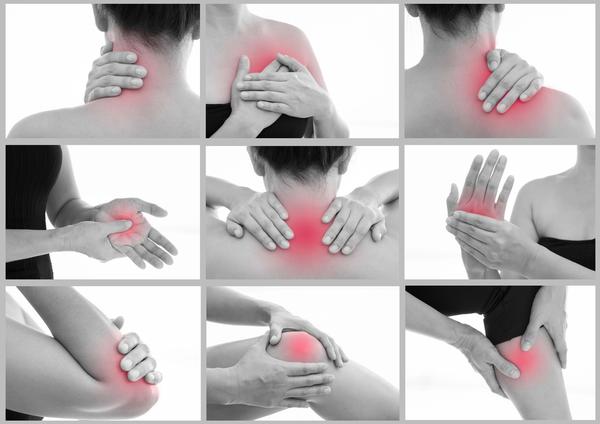North Platte Physical Therapy - Casper (West)
The Casper West clinic has been serving the needs of the surrounding community since 2010. This clinic along with our Casper East clinic continually strives to exceed the expectations of our patients. Our clinics are patient-focused and allow our patients to collaborate with their therapist on the optimal care for each individual. We provide this peak level of care in an energetic and enjoyable atmosphere.
We are dedicated to providing the best orthopedic care to central Wyoming. Our staff specializes in spine and extremities. We use multiple manual therapy and exercise treatment philosophies and techniques for treating back, muscle, joint, nerve and tendon disorders. North Platte Physical Therapy provides comprehensive physical and occupational therapy services to our orthopedic, pediatric, and geriatric patients. We have an excellent functional balance re-training program and fall prevention program. We also work with athletes and sports medicine patients.
Location Details
Address: 3831 Denis Drive #200, Casper, WY 82604
Hours: Mon - Fri 8AM - 5PM
Fax: 307-234-9074
Interested in scheduling at our East location? View Casper East Details
Services Offered
- Arthritis Pain
- Back Pain
- Back School Presentations
- Balance and Vestibular Rehab
- Biofeedback
- Biomechanical Gait Analysis
- Body Mechanics Training
- Chronic Pain
- Cupping Therapy
- Custom Foot Orthotics
- Custom Splinting
- Ergonomic and Worksite Evaluation
- Fine Motor Dexterity
- Golf Swing Analysis
- Graston Techniques
- Hand Therapy
- Headache
- Kinesio taping
- Modalities
- Myofacial Techniques
- Neck Pain
- Neurological Services
- Orthopdedic Clinical Specialist, OCS
- Orthopedic Service
- Pediatric Therapy
- Pool Therapy
- Post Cancer Treatment
- Pre/Post Surgical Rehab
- Return to sport exercise programs
- Running Injuries
- Self-care skills
- SFMA - Selective Functional Movement Assesment
- Spine Care
- Sports Medicine
- Stroke Rehabiliation
- Tendonitis
- TMJ
- Torticollis
- Trigger Point Dry Needling
- Vestibular Rehabiliation
- Women's Health
- Work Hardening/Conditioning
- Work Injuries
- Wound Care
Latest News & Info
Why Physical Therapy Is Essential for Work Injuries: Insights from North Platte Physical Therapy
Full Services for Work-Related Injuries
When an injury occurs in the workplace, physical therapists at North Platte Physical Therapy know that recovering means much more than just alleviating pain. Restoring the highest level of function that is needed in order to return to one’s work is a primary goal. North Platte Physical Therapy has many services for work-related injuries, and the physical therapy treatment plans are all individualized to each patient, to ensure that they are getting the best care to return to their occupation with strength, flexibility, and peace of mind. This goal is made possible by working with the patient in a one-on-one setting.
Work Injury Prevention
One of the main goals of work injury physical therapy is preventing the injury from recurring. Patients who have received an injury at their place of work are taught body mechanics to make sure they are using their bodies correctly during their day to day activities. Posture can also be addressed to prevent any further injuries. Physical therapists at North Platte Physical Therapy will also have patients increase their strength in muscle groups that are important for that patient’s occupation. This type of customized physical therapy has been known to not only help patients heal, but give them the information they need to take better care of themselves in the long term.
Functional Capacity Evaluation
Physical therapists at North Platte Physical Therapy can also perform what is known as a Functional Capacity Evaluation (FCE). An FCE is a series of tests that are used to give an objective measurement of the patient’s ability to perform specific work tasks safely. It can take a day or two to complete and results are used to aid the patient and employer in determining which job classifications the patient can safely return to following their work-related injury.
Pre-Work Screens & Return-to-Work Testing
Helping employees stay healthy is just as important as helping injured employees recover from their work-related injuries. North Platte Physical Therapy has worked with businesses all across Wyoming and Nebraska to help them perform what is known as pre-work screens for potential employees. By screening new potential hires, businesses are able to find out whether or not a new employee is capable of meeting the physical demands that are required in a certain position. Having these screens can reduce injury rates and keep the workforce as a whole safer.
Return-to-work testing also plays an important role in this. By giving employees who are returning from an injury a proper evaluation, it can ensure that the employees are truly ready to return to work and that they won’t re-injure themselves by returning too early.
Ergonomic Testing
North Platte Physical Therapy has certified professionals who are also available to come into the workplace and perform ergonomic assessments. Ergonomic specialists can be sent into the work environment to assess the patient’s work space as well as the flow of work. This will allow them to give proper solutions to modify the work space and the patient’s movements in order to reduce their risk of injury and increase their work capacity and efficiency.
Visit North Platte Physical Therapy at Multiple Locations
North Platte Physical Therapy is available at multiple locations across Wyoming and Nebraska. They have locations in Casper, Cheyenne, Gillette, Glenrock, Powell, Torrington, and more. This allows people in rural areas to have access to quality physical therapy just as much as people in major metropolitan areas. This is extremely beneficial for employees of all types and in all occupations.
Conclusion
Work injuries are more common than you may think, and with the right physical therapy, rehabilitation is possible. North Platte Physical Therapy has the knowledge and staff that is needed to help you get back to work with minimal trouble and delays. From proper physical therapy and treatment plans to work injury prevention and ergonomic testing, they can help with all aspects of getting injured employees back on their feet.
Give North Platte Physical Therapy a call today if you would like more information about their work injury physical therapy services.
Why Physical Therapy Is an Effective Solution for Chronic Pain
What Is Chronic Pain?
Chronic pain is any pain that lasts longer than three months or which persists even after the injury or illness that caused it has healed. It can range from mild to severe and can affect any part of the body. Some common chronic pain conditions are osteoarthritis, lower back pain, neck pain, neuropathic pain, fibromyalgia, and post-surgical pain.
Traditional management of chronic pain often involves the use of medications. This approach can be very successful in the short term but often has side effects that limit its use. In addition, people often become dependent on these medications and may experience withdrawal symptoms if they try to stop taking them.
Physical therapy is a great alternative to drug-based pain management because it is non-invasive and has no side effects. In addition, physical therapy can be tailored to the individual, making it more effective in the long run.
Physical therapy can help with chronic pain in many ways. It can help to improve function and reduce the amount of pain that you are in. Physical therapy can also help to increase your range of motion and flexibility. In addition, physical therapy can help to strengthen the muscles around your joints, which can help to reduce the amount of pain that you are in.
Physical Therapy for Chronic Pain Management
1. Identifies the cause of the pain:
A physical therapist is trained to understand how various parts of your body work together and can identify the underlying cause of your pain. Physical therapists typically use a combination of manual therapy and exercise to treat patients, but they may also prescribe other modalities such as ultrasound or electrical stimulation.
2. Creates a tailored rehabilitation program for you:
Once the cause of your pain is identified, a physical therapist will create a customized rehabilitation program designed to target your specific problem areas. This may include strengthening and stretching exercises as well as manual therapy techniques.
3. Teaches you how to manage your pain:
Physical therapists can also teach you how to manage your pain on a daily basis. This may include educating you on proper body mechanics, teaching you stretching and strengthening exercises to do at home, and providing you with tools to help manage flare-ups.
4. Can help you to avoid or delay surgery:
In some cases, physical therapy may be able to help you avoid or delay surgery. This is because surgery is often the last resort for treating chronic pain. If all other conservative treatments have failed, then surgery may be necessary. However, if physical therapy is successful in reducing your pain levels, then surgery can be delayed or avoided altogether.
5. Helps you stay active:
One of the best things about physical therapy is that it can help you to stay active, even when you’re in pain. Exercise is an important part of rehabilitation, and staying active can help to improve your strength and flexibility while also reducing the amount of pain that you’re in.
Physical therapy is an excellent way to manage chronic pain, and it should be considered by anyone who is struggling with this condition. If you’re not sure where to start, then talk to your doctor or another medical professional about getting a referral for physical therapy.
Comprehensive Physical Therapy Services at North Platte Physical Therapy
Explore North Platte Physical Therapy’s Range of Specialized Physical Therapy Services
Patients receive a variety of physical therapy services with licensed professionals who can help. Whether you are injured, have a chronic condition, or need to rehabilitate after surgery, North Platte Physical Therapy is ready to help you on your journey to mobility. Some of their most popular physical therapy services include:
Orthopedic Therapy
Orthopedic physical therapy involves treating injuries and conditions that affect muscles, bones, and joints. This type of therapy can include rehabilitation for joint replacement, fractures, sprains, strains, and sports injuries. The licensed therapists at North Platte Physical Therapy work with patients to develop a personalized treatment plan to help reduce pain and inflammation, improve strength and flexibility, and restore mobility. By providing effective orthopedic therapy, patients can often avoid surgery or the need for medications.
Spine Care
North Platte Physical Therapy provides an expert program for patients looking to manage and recover from chronic back and neck pain. Through a targeted program, patients can access services such as manual therapy, stretching, strengthening exercises, posture improvement, and more. All services are customized to manage pain and rehabilitate injuries and conditions like herniated discs, sciatica, or degenerative spine disorders.
Neurological Services
Patients who suffer from neurological conditions like stroke, multiple sclerosis, Parkinson’s disease, or spinal cord injury can receive expert neurological physical therapy. Their neurological physical therapists work with patients to develop a treatment plan to improve function, mobility, motor control, balance, and coordination. The goal is to help patients overcome their specific conditions and become as independent as possible.
Sports Medicine
Sports medicine physical therapy can provide a number of benefits for athletes and active individuals. Whether you are looking to improve performance or prevent injuries, North Platte Physical Therapy has the tools to help you meet your goals. Some of the ways they can help athletes include rehabilitating after sports injuries and providing individualized conditioning programs to stay in top shape all year long.
Work Injury Rehabilitation
If you have a work-related injury, it is important to seek out focused rehabilitation based on the type of injury you suffered and the physical demands of your job. North Platte Physical Therapy has a network of licensed therapists who can provide a comprehensive plan to help you recover from your injuries and return to work safely and quickly.
Pediatric Therapy
Pediatric physical therapy can provide a number of benefits for children who are struggling with developmental delays, congenital conditions, or injuries. The licensed physical therapists at North Platte are experienced in working with children and providing them with the therapy they need to improve mobility, coordination, and strength, while also working to help them become more independent.
Women’s Health and Pelvic Therapy
North Platte Physical Therapy also provides pelvic therapy and other women’s health-focused physical therapy services to help women overcome their unique physical challenges and concerns. Some of these services may include treating urinary incontinence, pelvic pain, and other types of pelvic health issues. Pelvic health is an important part of a women’s overall health and well-being, and physical therapy can play an important role in managing and treating pelvic floor dysfunction.
Post-Cancer Treatment Rehabilitation
Cancer and its treatments can take a physical toll on the body and impact the way that patients function and move. Through a post-cancer physical therapy program, patients can receive a targeted program that is intended to help them regain strength, mobility, and function after surgery, chemotherapy, or radiation. This is one of the ways that patients can regain a sense of vitality and feel like themselves again after cancer treatments.
Wound Care and Modalities
North Platte Physical Therapy also provides wound care services for patients who may need additional support managing chronic wounds or wounds that are slow to heal, particularly those who have diabetes or vascular disease. They also offer a number of therapeutic modalities to help patients reduce pain, improve mobility, and manage inflammation. These include dry needling, Graston Technique, Kinesio Taping, cold laser, electrical stimulation, therapeutic ultrasound, and more.
Patient-Centered Approach & Convenient Locations
Patients with North Platte Physical Therapy can count on a number of benefits to make them feel special and cared for from the time that they schedule an appointment to when they receive their treatment. Their patients are put first with individualized treatment plans and friendly and professional support every step of the way. Their in-network services, treatment options, and physical therapy services are supported by expert care and patient education to give individuals the tools they need.
North Platte Physical Therapy has a number of locations that serve Wyoming and western Nebraska, including, but not limited to Casper East and West, Cheyenne North and East, Gillette, Scottsbluff East and West, Sutton, Thermopolis, Torrington, Wheatland, and Wright.
Conclusion
North Platte Physical Therapy’s full range of physical therapy services is sure to have a treatment plan that works for you. From orthopedic therapy and spine care to neurological rehabilitation, pediatric physical therapy, and more specialized women’s health physical therapy options, North Platte has the solutions for you to “get back on your feet fast and keep doing the things you love.” Patients can find a convenient physical therapy near me with North Platte Physical Therapy and their network of 18 different clinics.
If you are ready to take the next step in your physical therapy and rehabilitation, visit northplattept.com for more information about services, clinics near you, and scheduling your first appointment.
